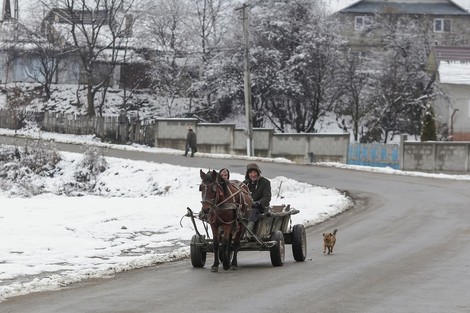Your podcast discovery platform
Curious minds select the most fascinating podcasts from around the world. Discover hand-piqd audio recommendations on your favorite topics.

piqer for: Health and Sanity Global finds
I was born in 1987 in Bucharest. I studied Psychology and Educational Sciences at the University of Bucharest. For two years I worked in a psychotherapy practice, dealing with gambling addicts. I'm an independent reporter, writing and doing video reportages mostly about social and political issues. I am currently based in Jena.
Voting To Survive: Romanians Elect Mayors Despite Graft Record
Why do Romanians keep re-electing convicted criminals, and think those convicted criminals are actually doing a good job? Because there’s a symbiotic relationship between the country’s national leadership and the local mayors, sociologist Daniel Sandu says. He goes on to explain the funds-distributing mechanism that results in this relationship: the government gives funds to local mayors to pave a few roads, install some street lighting — stuff that makes the mayors very popular with voters — and, in return, the mayors make sure to bring the votes in when the time comes.
Although in Romania funds are usually distributed by parties to their own mayors, the leader of the ruling Social Democrat Party, Liviu Dragnea, went a step further:
“Dragnea created a multi-billion euro state-funded program in 2013 when he was regional development minister. Under this, money for rural and municipal infrastructure projects is now distributed to the counties by a deputy prime minister, without the need for overall government oversight.”
In a country where more than 200.000 children go to bed hungry, where one in two Romanians struggle to keep their homes warm or pay bills in time, where disparity between urban and rural development is huge, where there’s a severe lack of basic services in the rural areas, Sandu says:
For such people, spending by the local mayor is often a lifeline, so they vote for the candidate they think will produce the cash for their community. “They are literally voting to survive,” Sandu said. “These people feel forgotten, abandoned, the losers of the transition and they believe their closest form of survival is the leader or party closest to them.”
Stay up to date – with a newsletter from your channel on Global finds.
